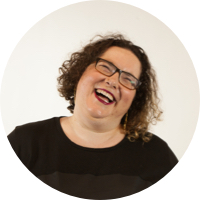Sarah Laszlo, PhD

Sarah is a senior research scientist working across many early stage teams at X, the moonshot factory. She holds a bachelor's degree in Brain and Cognitive Science from MIT, where she was Phi Beta Kappa and winner of the Hans Lukas Teuber award for scholarly excellence. She completed her master's and doctoral degree in Brain and Cognition at the University of Illinois, Urbana-Champaign. Subsequently she was an NIH-NRSA postdoctoral fellow at Carnegie Mellon University for two years, where her research focused on neurally plausible computational models of language comprehension. Sarah was a tenured professor of psychology and linguistics at Binghamton University, where she led the largest study ever conducted of brain development during reading acquisition, prior to leaving academia for industry. Sarah and her research have been featured on NPR’s Science Friday, as well as Wired, Scientific American, and the Huffington Post. Her research interests include neuromorphic computing, brain computer interface, and natural language processing.